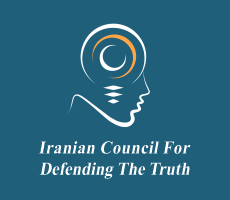In some respects, the Ukraine conflict is the result of not being able to solve a gordian knot. Ukraine has a distinct language, history, and culture, so, like many recognized nations in the world, has a state to protect its interests. Russia has been invaded from the west on five occasions in its history from Poland/Lithuania in 160 to Hitler in 1941 and, under Putin, sees securing this area of the northern plains of Europe as paramount to its security. The expansion of NATO has certainly caused Putin real concern. Having said this, there are no countries in eastern Europe that want to attack Russia and no-one in the United States has an appetite to take on Russia, so this is a war without any real basis.
Each country joined NATO as a means of securing its own territory and trying to obtain the economic benefits of gaining EU membership (which usually occurs after NATO membership). Putin has violated international law and engaged in illegal actions rife with human rights abuses. History will remember him poorly for his militarism and gross violations of humanity, among many other problems caused by his rule.
It is hard to state exactly why Putin does anything on the world stage, but I think he views Ukraine as an important element in security. Putin has clearly been preparing for this invasion for some time, amassing over 100,000 troops on the border since November, conducting joint military exercises with Belarus as a cover during the February Winter Olympics, and amassing a reported $630 billion war chest to offset anticipated western sanctions. Russia’s normal, major quadrennial military exercises are generally more predictable and while Putin has amassed troops on Ukraine’s borders every four years, he withdraws them quickly. The sustained build-up gave significant signals of a looming war.
Ukraine is a member of the Partnership for Peace initiative but has not moved forward to the Membership Action Plan stage, which would later allow them to join NATO. Ultimately, there is a real concern among NATO countries that adding Ukraine would be too much of a provocation for Vladimir Putin. Even though Ukraine has been discussed as a possible future member since President George W. Bush’s first term, Ukraine has not moved forward.
Having said this, several NATO countries have partnered with Ukraine in more overt ways. Some governments have provided significant aid, including lethal military aid. But, no country has taken major steps to bring Ukraine closer to the NATO fold.
Depending on the outcome of the war and whether Ukraine remains an independent country in its aftermath, it is possible that many Europeans will feel a sense of guilt for not doing more. EU membership has become an increasingly possible outcome; although, it does take time to move through the Copenhagen Criteria–steps necessary to properly align with EU standards in order to enter the bloc.
However, some of the sanctions are very serious and could cause significant issues for the Russian economy. President Biden touted the success of these sanctions in his recent State of the Union address. For me, many of these sanctions were far too slow in being initiated and took too long to target the appropriate people/entities. Moreover, the big issue in the long-term is the energy sector wherein Russian will continue to move forward unless the United States and other suppliers of oil and natural gas do more to move European countries away from Russian energy. President Biden’s decisions in January 2021 have very much allowed Putin to gain extensive wealth through the energy sector. Combined with overreliance in many parts of Central and Eastern Europe on Russian LNG, these governments have partly funded Putin’s unprovoked and illegal aggression in Ukraine.
It is quite possible that the Ukraine conflict might be a starting point for new waves of wars and conflicts around the world. The post-1945 world order is structured upon norms against illegal military aggression and the annexation of countries–whether in part or in total. Given that Russia has violated these norms on several occasions in Georgia and Ukraine, there is concern over the future of the world order. The previous examples of Russian military aggression typically involved stalemated frozen conflicts or the addition of military bases.
However, in the case of a full invasion of Ukraine, this changes the norm of territorial non-viability such that other countries like China or Turkey may also act more aggressively to gain territory. Numerous other governments around the world may also follow, but much depends on what happens in Ukraine first.
I don’t think the Ukraine conflict is a sign of a transition era to new world order. China has certainly emerged as a superpower on the world stage in recent years, joining the United States. Russia is still a significant regional power bolstered by nuclear weapons, but it is not at the same level economically or geopolitically as the USA and China. Even though we only have limited evidence, Russia’s military, while strong, has produced major blunders in Ukraine, which have exposed areas of unprofessionalism and corruption.

